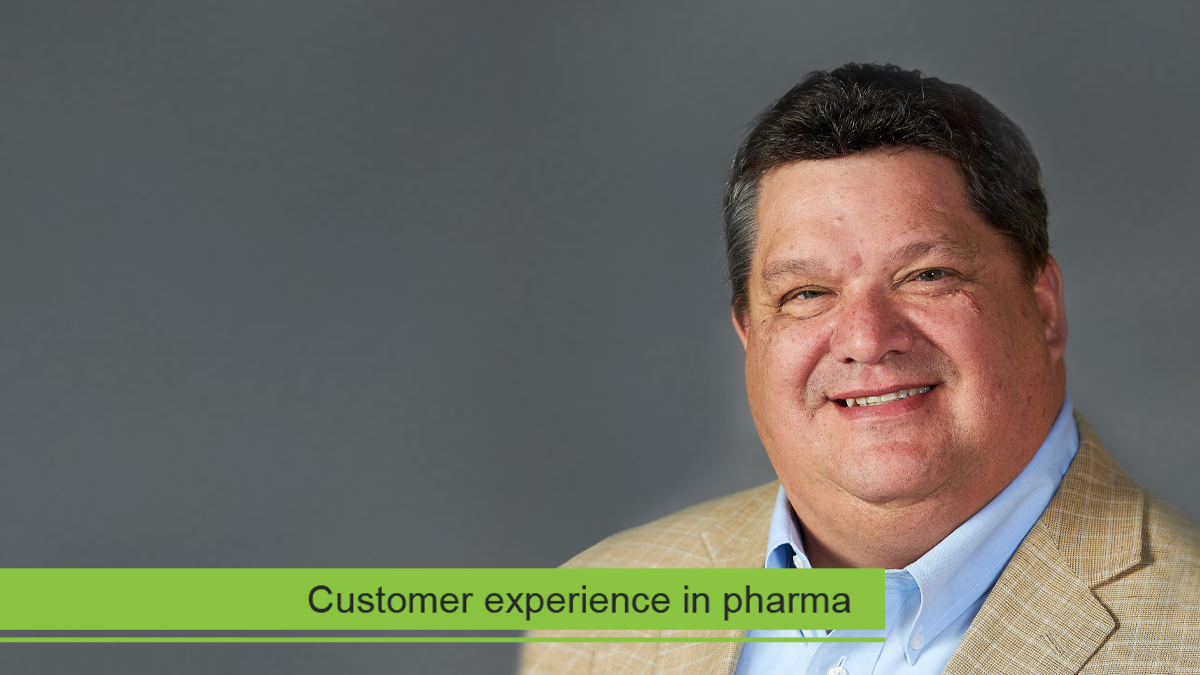Engaging with customers in a digital world

As part of our series on customer experience in pharma, in partnership with Indegene, Ipsen’s Paul Murasko explains the many ways digital can enhance the customer journey – so long as the industry remembers it’s just one piece of the puzzle.
What is your current role?
I head up Digital Customer Interactions (DCI) for North America at Ipsen Biopharmaceuticals. In this role my team and I are focused on increasing customer engagements while improving the effectiveness and efficiency of all digital interactions with healthcare professionals and patients/caregivers.
I have been in healthcare for over 25 years, concentrating the last decade of my career on digital, from digital centers of excellence to multichannel and omnichannel execution, always having technology and innovation as part of my remit in some way.
What interests me about customer experience is that we are currently in the next generation of what started out as digital marketing ten years ago. I have a lot of adjectives against my skill set, but when it comes down to it, it's not like I've changed jobs; we're just evolving how we can and, more importantly, should engage with our customers.
“It's really not about digital marketing – it's about marketing in a digital world”
Exactly. We've gone through CLM, multi-channel, omnichannel, customer experience – but it's all still marketing.
I've been saying for the last five or six years now that it's really not about digital marketing – it's about marketing in a digital world. I think that's starting to finally resonate in pharma and biotech; hopefully the term ‘digital marketing’ won't be used in the next few years, because it's not giving credence to what it really is. It's not about just the tactic.
My remit when I joined Ipsen was to create a digital center of excellence for North America, because they never had one. We have quickly evolved into a team that drives innovation through digital solutions focused around customer engagement, with the narrative being that the customer is different depending on what you are trying to accomplish.
One of the reasons why I've stayed in healthcare is because, ultimately, we have one customer – the patient. We need to keep reminding people of that, so we don’t lose sight of why we're doing what we're doing.
What have you learned from your other roles in healthcare, such as in medical devices? The device industry often seems to be perceived more positively than the pharma industry in terms of customer experience.
That’s partly because medical device marketing teams aren’t really built to be a marketing team – they’re built to be a customer support team for the product and sales force.
Having spent time in various cross functional groups such as sales, marketing, engineering and operations in several different sectors of healthcare, I’ve learned lessons that can be shared and are very valuable in past and current digital roles. I feel I really benefit from the perspective that has given me, because I’m not just the digital/technology guy who pushes the new shiny object or offers the platform and technology as a solution. I still go back to asking, “What are we trying to solve and what is the right mix of channels/tactics that will solve it?”
Currently, my team is embedded in each of Ipsen’s business units. They don't even sit with me and the commercial operations group. They sit with the marketing teams, and are active, integral members of the brand team.
They’re not there to make sure digital has a say. They're there because they are engaging in the strategic objectives of that particular brand and providing solutions. The key is not to be an outsider. You need to have a seat at the table.
How do you personally define customer experience?
I believe customers now expect pharma and healthcare to engage and support their needs like any of the other industries they deal with. It’s an evolution that I've been experiencing.
When asked that question in the past, I used to say, "Our customer experience has to be Amazon-like." I'm not using that phrase anymore, because I don't think we need to be Amazon-like, and I don't think pharma companies have the ability to be Amazon-like. I also think Amazon's going to disrupt healthcare in such a way that we're going to be changing our model and letting Amazon be Amazon, while we do other things that support the Amazon model and customer experience. That's my wild idea of what's going to happen in five years!
Do you think there will be certain elements of customer experience we don't need to worry about because companies like Amazon will take care of them?
Yes and no. They'll take care of the ordering and distribution part of the customer experience. I think pharma will still always have to own the story on why we've developed a drug or product or solution – hopefully it's a solution, not just a drug – why it's important and why it makes sense to use it. That’s the customer experience we're going to need to have regardless of Amazon.
Today, if you asked me to talk about customer experience, it's really about how we are engaging and interacting with our customers – be it economic buyers, patients, caregivers or physicians.
We do a good job in pharma with patient advocacy, but I don't know if we do a good job interacting with patient influencers or always putting patients first and getting continued insight from them, from pre-commercial through commercial
In my mind, a patient advocate is someone who is using your product or in some way, shape, or form is speaking on your behalf. That's important and we must continue striving to create better experiences there. However, there is an opportunity to improve and increase the way we gain insight from patients and caregivers. This involves engaging with them even before you design that next clinical trial. If we engage with them appropriately early on, we're going to have more successful clinical trials, and we’re going to be able to recruit more successfully. Meanwhile, we can gather insights and build that into the experience that becomes our commercial model.
That continual feedback loop is very critical.
“Pharma will still always have to own the story on why we've developed a drug… That’s the customer experience we're going to need to have regardless of Amazon”
How exactly do you gather those insights?
It could be as simple as asking them how we're doing. I'm a big believer in gathering insights from the data – seeing what's being used, what's not being used, and using tools that allow you to ask questions within the experience in such a way that the user doesn't even think they're being surveyed.
It doesn't always have to be scientifically significant; it can just be looking at, say, what 70% of users over the last two weeks did. That gives you enough to start optimising your tactic or content.
The value of a digital initiative or a digital campaign – compared to more traditional channels – is the ability to do things more effectively and efficiently. We have evolved from the days when you didn’t know if your TV commercial was successful until long after it aired. Now digital can allow you to gain insight as to how that commercial needs to be set up, and how, when and where it needs to run. You can get feedback quickly and tweak the campaign accordingly.
There's a common theme behind everything I've been talking about, and that's the use of data – but for customer experience to be successful or to be easily integrated, you really have to move from data and analytics towards insights.
We should not struggle to capture data anymore. We should put our time and energy not into data capture but into analysis – not the analysis that leads to a great dashboard or report, but analysis that leads to the next series of insights. I would love to get to the point where I'm using data that generates insights that allow me to produce some predictive modelling to determine next best action or what new content to generate.
Is that what you see as the key challenge with pharma at the moment – getting that data, those insights, and predicting off the back of that?
Yes, but there are a number of steps in this journey. Any one of those steps individually can potentially be enough of a barrier to slow this down so it never gets from one step to another.
What do you think pharma’s relationship with its customers will look like if we get this right?
The more companies that embrace this, the more the industry will evolve and I believe our reputation will improve. And if we don’t come along as an industry, the companies that are doing this right will start significantly differentiating themselves.
I also believe that if you start enhancing customer experience correctly you can move away from a company that is a house of brands with limited company brand equity towards a company brand that has a lot of great products.
I would also love to see us transition from the word ‘product’ towards ‘solutions’, because it could be a drug or a molecule, or a digital solution that complements the drug, or a delivery mechanism. Or maybe all of the above. That would enhance the customer experience.
About the interviewee
Paul Murasko is currently North American head of digital customer interaction at Ipsen, responsible for leading and building its capabilities to help the organisation improve the effectiveness, efficiency and engagement of all digital interaction with healthcare professionals, patients and caregivers. Previously, Paul was senior director of multi-channel marketing for Sunovion Pharmaceuticals and led a team responsible for non-personal promotion, digital strategy and execution as well as the tele sales team.












